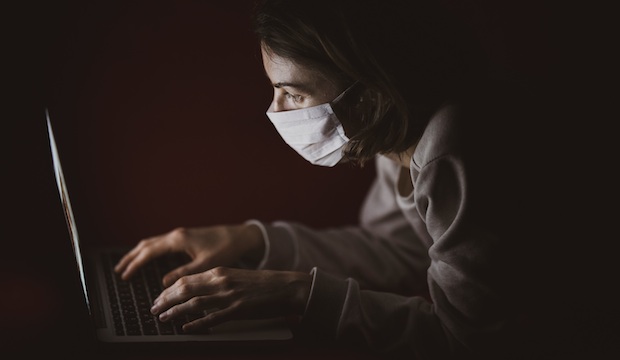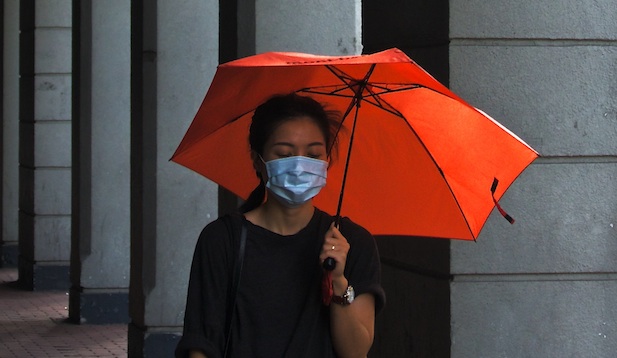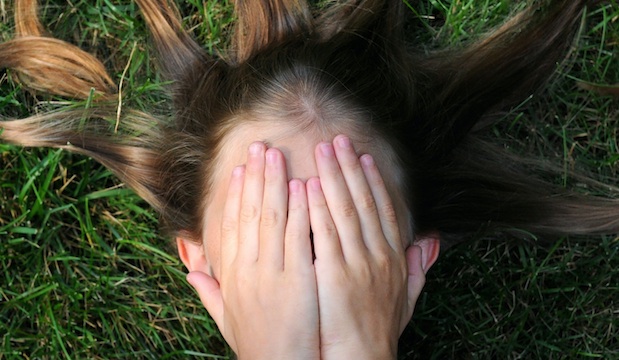A psychologist on the impact of lockdown and embracing the ‘new normal’
From the effects of lockdown on our mental health to re-emerging into the world and finding it changed, how will the coronavirus outbreak affect us psychologically?
How will the lockdown affect us psychologically?
From reacquainting ourselves with face-to-face interaction to boarding public transport for the first time in months, what awaits us when the lockdown restrictions are lifted is the question preoccupying many of us right now.
It’s becoming increasingly apparent that the public world we’ll be re-entering will be different from the one we last enjoyed freely back in March. Arts venues, restaurants, pubs and gyms might not reopen for a long time yet, while some level of social distancing will still be required. But just how easy will it be for us to embrace a 'new normal' landscape, if the world we’re released back into doesn’t match up to the one we knew before?

Even those of us fortunate enough to have remained healthy during this downtime, who have not lost friends or family members to the virus, could experience psychological impacts from living under lockdown for several months later down the line.
According to a report in The Telegraph, the impact of the lockdown on our mental health could affect communities in ways not dissimilar to the effects of Grenfell Tower or the Manchester bomb. The same report goes on to cite Claire Murdoch, the mental health director for NHS England, revealing that the health service is expecting a surge in referrals for mental health conditions including anxiety and depression.
The negative effects a lockdown can continue to have on our mental health, even once it’s lifted, have already been observed in Italy. The Guardian reported on a survey by Italy’s order of psychologists (CNOP), which found that eight in 10 Italians said they needed psychological support to overcome the pandemic, with a combination of looming financial hardship and a continuing fear for their health among the most common triggers.

Do similar afflictions await those of us in the UK when we resurface from confinement? According to research by the Royal College of Psychiatrists, also published in The Guardian, people with no history of mental illness were already reporting symptoms of anxiety and depression eight weeks into the lockdown.
For many of us fortunate enough to have remained fit, with jobs and finances still intact, a way of coping with confinement has been looking forward to a return of all the things we miss – be it trips to the theatre or sitting down in a restaurant for a celebratory meal with family and friends. But none of these things are guaranteed under the 'new normal', even once lockdown lifts. How can we adjust to a post-lockdown landscape that might look very different from the one we previously knew?

‘It’s very normal to be disappointed and experience a sense of loss around the social activities we once took for granted,’ says Dr Elena Touroni, a consultant psychologist and co-founder of The Chelsea Psychology Clinic. ‘While it’s natural that we might compare our norm before, we need to shift our focus to a sense of gratitude for the things we miss,’ she says, pointing out that it's about adopting a glass-half-full approach and seeing each little step as progress towards the life we knew returning.
Can those of us who haven't been directly impacted by the virus still experience a psychological impact from having spent several months under lockdown? If so, how is this likely to affect us in the future? ‘I think there will almost certainly be a psychological impact, but the specifics are likely to be dependent on the individual,’ comments Dr Touroni. ‘Those who already suffered from anxiety day-to-day before lockdown, might have experienced a significant rise in their symptoms, and it may take some time for them to feel safe in the world again. How long the psychological consequences will last rests on our ability to adapt and contain our anxieties – and start re-engaging with the things we used to.’

Interestingly, Dr Touroni predicts that among those likely to struggle the most with venturing back into the world will be those who have coped by cocooning themselves in the blanket of a comforting new routine – complete, perhaps, with regular movie nights, inspiring home-cooked meals, plenty of down-time and more than enough sleep.
‘Those who had a very hectic lifestyle before lockdown might have found some benefits in this slower pace of life, such as no commuting and more time spent with family. Even though there may have been feelings of deprivation to begin with, for some people these changes may have been beneficial, encouraging them to embrace more of life’s simple pleasures,’ she says.
‘My hypothesis is that there will be some people who very quickly bounce back and embrace life as it was. But there will be others – those who found the slower pace of life beneficial – who might experience a sense of loss as they start having to juggle multiple responsibilities again.’

On the whole, Dr Touroni is positive about our collective response to the lockdown eventually easing. ‘When more restrictions lift and our "new normal" begins to emerge, there’s likely to be a significant amount of joy and excitement,’ she says.
As for those who are left feeling low or disheartened about the ‘new normal’, Dr Touroni has some advice. ‘Be mindful of being in the present moment, and avoid making comparisons between past and present, and ruminating about how good things were, or how things will never be the same again,’ she advises. ‘Hold on to a sense of hope and optimism for the future. The world isn’t going to stay static, so appreciate things for how they are right now.’
It’s becoming increasingly apparent that the public world we’ll be re-entering will be different from the one we last enjoyed freely back in March. Arts venues, restaurants, pubs and gyms might not reopen for a long time yet, while some level of social distancing will still be required. But just how easy will it be for us to embrace a 'new normal' landscape, if the world we’re released back into doesn’t match up to the one we knew before?

Even those of us fortunate enough to have remained healthy during this downtime, who have not lost friends or family members to the virus, could experience psychological impacts from living under lockdown for several months later down the line.
According to a report in The Telegraph, the impact of the lockdown on our mental health could affect communities in ways not dissimilar to the effects of Grenfell Tower or the Manchester bomb. The same report goes on to cite Claire Murdoch, the mental health director for NHS England, revealing that the health service is expecting a surge in referrals for mental health conditions including anxiety and depression.
The negative effects a lockdown can continue to have on our mental health, even once it’s lifted, have already been observed in Italy. The Guardian reported on a survey by Italy’s order of psychologists (CNOP), which found that eight in 10 Italians said they needed psychological support to overcome the pandemic, with a combination of looming financial hardship and a continuing fear for their health among the most common triggers.

Do similar afflictions await those of us in the UK when we resurface from confinement? According to research by the Royal College of Psychiatrists, also published in The Guardian, people with no history of mental illness were already reporting symptoms of anxiety and depression eight weeks into the lockdown.
For many of us fortunate enough to have remained fit, with jobs and finances still intact, a way of coping with confinement has been looking forward to a return of all the things we miss – be it trips to the theatre or sitting down in a restaurant for a celebratory meal with family and friends. But none of these things are guaranteed under the 'new normal', even once lockdown lifts. How can we adjust to a post-lockdown landscape that might look very different from the one we previously knew?

‘It’s very normal to be disappointed and experience a sense of loss around the social activities we once took for granted,’ says Dr Elena Touroni, a consultant psychologist and co-founder of The Chelsea Psychology Clinic. ‘While it’s natural that we might compare our norm before, we need to shift our focus to a sense of gratitude for the things we miss,’ she says, pointing out that it's about adopting a glass-half-full approach and seeing each little step as progress towards the life we knew returning.
Can those of us who haven't been directly impacted by the virus still experience a psychological impact from having spent several months under lockdown? If so, how is this likely to affect us in the future? ‘I think there will almost certainly be a psychological impact, but the specifics are likely to be dependent on the individual,’ comments Dr Touroni. ‘Those who already suffered from anxiety day-to-day before lockdown, might have experienced a significant rise in their symptoms, and it may take some time for them to feel safe in the world again. How long the psychological consequences will last rests on our ability to adapt and contain our anxieties – and start re-engaging with the things we used to.’

Interestingly, Dr Touroni predicts that among those likely to struggle the most with venturing back into the world will be those who have coped by cocooning themselves in the blanket of a comforting new routine – complete, perhaps, with regular movie nights, inspiring home-cooked meals, plenty of down-time and more than enough sleep.
‘Those who had a very hectic lifestyle before lockdown might have found some benefits in this slower pace of life, such as no commuting and more time spent with family. Even though there may have been feelings of deprivation to begin with, for some people these changes may have been beneficial, encouraging them to embrace more of life’s simple pleasures,’ she says.
‘My hypothesis is that there will be some people who very quickly bounce back and embrace life as it was. But there will be others – those who found the slower pace of life beneficial – who might experience a sense of loss as they start having to juggle multiple responsibilities again.’

On the whole, Dr Touroni is positive about our collective response to the lockdown eventually easing. ‘When more restrictions lift and our "new normal" begins to emerge, there’s likely to be a significant amount of joy and excitement,’ she says.
As for those who are left feeling low or disheartened about the ‘new normal’, Dr Touroni has some advice. ‘Be mindful of being in the present moment, and avoid making comparisons between past and present, and ruminating about how good things were, or how things will never be the same again,’ she advises. ‘Hold on to a sense of hope and optimism for the future. The world isn’t going to stay static, so appreciate things for how they are right now.’
TRY CULTURE WHISPER
Receive free tickets & insider tips to unlock the best of London — direct to your inbox